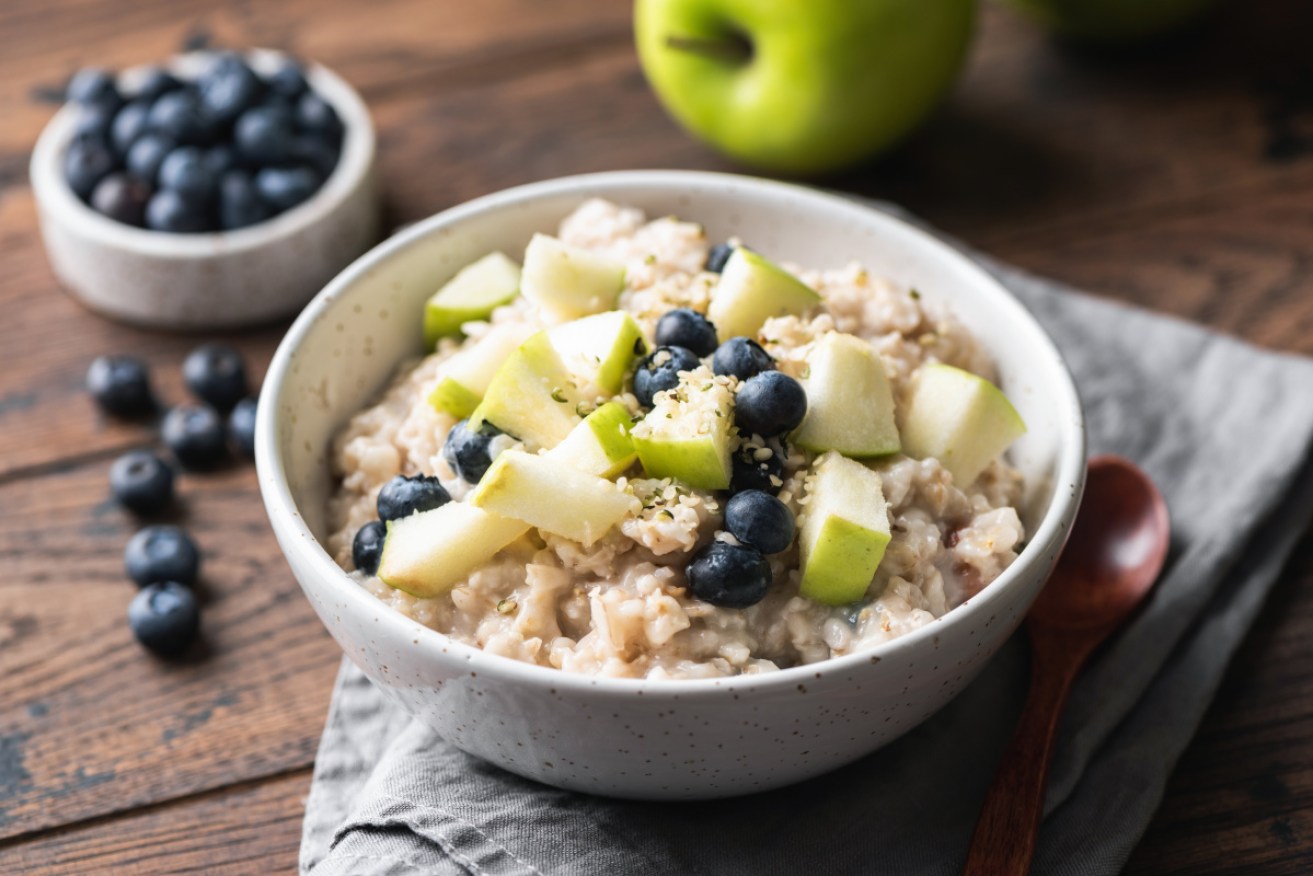Eat oats every day to get a head start on beating the Christmas battle of the bulge


A bowl of oats and fruit will keep you full for much longer than sugary breakfast cereals. Photo: Getty
We’re in for one long party season this year.
Most people from NSW and Victoria – that is, those that have been vaccinated – are still getting used to the fact that they’re safe enough from COVID-19, and that it’s okay to catch up with friends and family.
We’ve gone from COVID-19 anxiety to vaccine anxiety and now? Normality anxiety. Is it true? Have we mostly got our lives back? Really? Woo hoo!
And so begins a long round of reunions, complete with greasy, salty snacks and the joyous raising of glasses. In the midst of these celebrations, it’ll suddenly be Christmas, with another round of parties.
All of this is great for the soul, but not so much for the heart and the waistline.
To offset the health impact of the good-time gorge, eating whole grain oats each day, especially at breakfast, will go some way to protecting your heart and your liver.
It will also keep you feeling full (which promotes weight loss) and ensure those over-worked bowels won’t clog up.
Simple, affordable and versatile food
Oats are highly nutritious and – unlike many trendy superfoods – they’re cheap and easy to prepare. The simplest method is to boil a cup of rolled oats in water with a pinch of salt and serve with milk and a touch of honey.
But they’re equally good raw but soaked in milk overnight with some added fruit.
A simple but tasty dinner can be had from mixing rolled oats with eggs and a touch of milk. Using a dessert spoon, scoop the raw mixture into cookie sized portions and fry in a non-stick pan and served with a squeeze of lemon.
Our national biscuit, the Anzac, is largely made from oats.
For 50 things to make with oats, see here.
The health benefits of oats
Oats are one of our most nutrient-dense foods. They contain high amounts of vitamins and minerals, including manganese, phosphorus, copper (often lacking in Western diets and considered important for heart health), vitamin B1 (thiamine) iron, selenium, magnesium (also often lacking in our diet) and zinc.
In 100 grams of raw oats, you get:
- 389 calories.
- 16.9 grams of quality protein, which is higher than most grains
- 10.6 grams of fibre
- 6.9 grams of healthy fat
- 66.3 grams of carbs
Resistant starch and improved gut health
Most of the carbs are starch, but of a healthier variety. Only seven per cent of oat starch is quickly broken down and absorbed as glucose and can cause sugar spikes in the blood.
Most of the starch found in oats is resistant starch which ‘resists’ digestion in the small intestine. When it moves into the large intestine, it behaves like a form of fibre by fermenting and feeding the resident ‘good’ bacteria.
So, oats are great for improving gut health
High levels of beta-glucan
Oats are very high in the soluble fibre beta-glucan which has been shown to reduce cholesterol and blood sugar levels, and promotes feelings of fullness (also promoted by oats’ healthy fat profile).
Like resistant starch, beta-glucan promotes healthy gut bacteria, a healthier stool and weight loss. In combination, these properties suggest oats protect the heart.
Avenanthramide
Avenanthramide (AVE) is a type of phenolic compound found only in oats.
There is good evidence that oat AVE is a powerful antioxidant, anti-inflammatory, anti-itch and has anti-cancer properties.
An 2014 industry-funded study – involving 11 top scientists – found that oat AVEs may also play an important role in protecting the heart.








